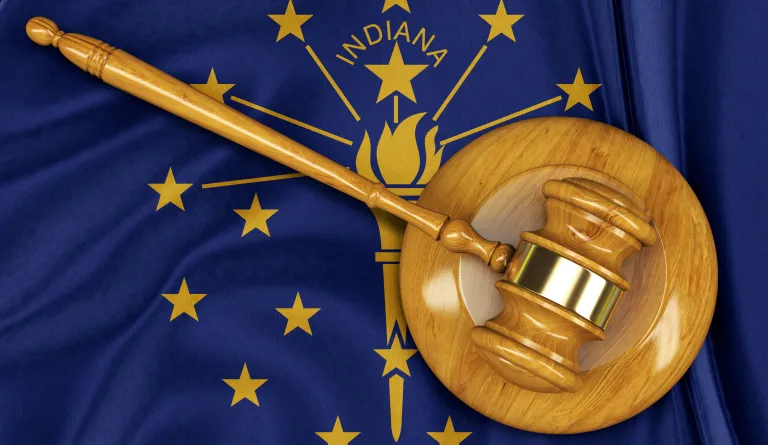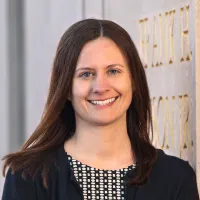ATLN Supports Advancing Alternative Fee Structures in Indiana

Like many states across the country, Indiana is experiencing an attorney shortage—there are not enough attorneys licensed to practice law in Indiana to serve every Hoosier who needs legal help. These shortages adversely affect access to justice, economic and workforce development, and the civic health of communities. Where it involves shortages of prosecutors and public defenders, it is a public safety crisis. It does not reflect a single problem, and it defies a single-answer resolution.
In 2023, the Indiana Supreme Court created the Commission on Indiana’s Legal Future. The Commission was charged with exploring options for addressing Indiana’s attorney shortage and providing a written report with findings and recommendations to the court by July 1, 2025.
In its final report, the Commission provides updates on progress made on their interim recommendations and offers a list of additional recommendations aimed at solving the attorney shortage and access to justice crises in Indiana.
The Above the Line Network (ATLN) has submitted public comments in support of the report’s recommendation to advise practitioners on alternative fee arrangements. With its collective expertise in developing and supporting innovative practice models, ATLN is well-suited to provide meaningful commentary on the role of alternative fee arrangements in expanding access to justice, particularly for those who are above income-eligibility for free legal services.
The Above the Line Network
ATLN is a group of leaders and innovators from across the U.S. and Canada who are working together to transform the delivery of legal services to the underserved middle class. Middle-class Americans face daunting challenges finding affordable legal help when they need it. They are “above the line” of income eligibility for the free legal aid reserved for the least wealthy Americans, but they also struggle to find quality and affordable legal services in the current legal market. With the middle class representing more than 50% of our nation’s population (over a hundred million people), their challenges in getting legal help have profound consequences for access to justice in our country.
While there is no one-size-fits-all solution, there are many promising models around the U.S. and beyond already in place and committed to serving this vastly underserved market. ATLN brings these existing efforts together—including incubators, socially-conscious private law firms, nonprofit law firms, legal aid programs, and other organizations—into a collaborative and supportive community where ideas, resources, and best practices can be shared, further developed, and scaled to reach more people. ATLN is a joint project of IAALS and The Chicago Bar Foundation.
Alternative Fee Structures Can Increase Access to Justice for the Middle Class
ATLN strongly supports the Commission’s recommendation to advise practitioners on alternative fee structures. For over a decade, many incubator programs, including The Chicago Bar Foundation’s Justice Entrepreneurs Project (JEP), have promoted the use of alternative fee arrangements because of the benefits they provide to both legal consumers and practitioners. In fact, offering set fees and other alternative fee arrangements is one of the core principles of the JEP.
Unlike the billable hour, alternative fee arrangements provide price transparency and certainty to clients who would otherwise feel priced out of the legal market. We know from research such as IAALS’ Cases Without Counsel: Research on Experiences of Self-Representation in the U.S. Family Court (2016) that a lack of price certainty can be a significant barrier to legal consumers obtaining legal help. Most people are on a budget. They need to know how much legal services are going to cost at the outset of the case. While they often have some money to pay for legal services, they are not able to write a blank check. Despite this, most practitioners still rely on large upfront retainers and open-ended hourly billing. Many middle-class Americans simply forego hiring an attorney, anticipating that they simply cannot afford one.
Legal consumers want alternative fee arrangements. According to the 2024 Clio Trends Report, 71% of clients surveyed wanted to pay a flat fee for their entire case, but only 50% of practitioners surveyed were offering them. This gap represents a clear opportunity for Indiana practitioners, if given clarity around the rules and the right resources to support the implementation of alternative fee arrangements.
Alternative fee arrangements—flat fees (one time or recurring), contingency fees, subscription fees, and others—provide more price transparency and certainty for clients, allowing them to budget or arrange funds at the start of the case. Anecdotally, legal incubator program participants and alumni from across the country have used alternative fee arrangements as a powerful tool for connecting people and small businesses with accessible and affordable legal help.
Importantly, alternative fee arrangements can also be good for practitioners. Shifting from a billable-hour model to alternative fees reduces the administrative burden of tracking time while increasing firm efficiency. Alternative fee arrangements also create a more predictable cash flow, often with faster payment of fees. Since clients agree upfront upon a particular price or payment plan, it mitigates collections issues that commonly arise with hourly billing. Because alternative fees can be tied to value (infinite) instead of time (finite), it can also allow for increased revenue.
We think it is important to also highlight the reduction in stress provided by shifting away from hourly billing. Offering alternative fee arrangements can give attorneys more control over their practice, detaching them from living their lives in six-minute increments, a significant factor in the profession’s mental health challenges.
In short, alternative fee arrangements can be a win-win for both the public and the profession.
The Development of Clear Guidance & Resources Encourages Use
Uncertainty around rules, especially rules of professional conduct, can deter practitioners from experimentation. Attorneys, by temperament and training, tend to be risk adverse. Without clear guidance or ethics opinions they will likely err on the side of caution and traditional models. Clear guidance is critical to addressing the need in Indiana, and ATLN strongly supports the Commission’s recommendation to provide an advisory opinion on alternative fee structures. If the Commission is looking for examples of states that have added clarity around the usage of flat fees, ATLN recommends looking at Illinois and Colorado Rule of Professional Conduct 1.5, both of which clarify the permissibility of flat fees. Colorado’s rule also includes a form flat fee engagement agreement.
In addition, ATLN recommends the Commission consider providing guidance on how fee petitions can be based on alternative fees. If practitioners are required to submit time records in connection with a fee petition, it undermines the benefits of alternative fee arrangements and thus attorneys become less likely to offer them. Illinois Supreme Court Rule 300 provides a model for this guidance by clarifying that a fee petition can be based on any fee agreement that is allowed under Rule 1.5 of the Rules of Professional Conduct without requiring time-based entries except in narrow circumstances.
Finally, ATLN also recommends that the Commission connect practitioners in Indiana with resources that will assist them in pricing. Attorneys do not learn how to price their services in law school, and few CLEs on pricing exist. The Chicago Bar Foundation has created a Pricing Toolkit and related resources to assist practitioners in pricing legal services based on value instead of time. ATLN would be delighted to work with the Commission to connect practitioners in Indiana with pricing resources.
Conclusion
ATLN is grateful to the Commission on Indiana’s Legal Future for the opportunity to share its support for this proposal. We welcome the chance to share further insights from our work across the country to support Indiana practitioners as well as leaders and practitioners in other jurisdictions in expanding access to justice through the implementation of alternative fee arrangements.
Please note that these comments were issued on behalf of the Above the Line Network in its collective capacity. It does not necessarily reflect the personal views, beliefs, or endorsements of any individual member, their organizations, or affiliations. Individual members may hold differing perspectives and should not be presumed to support every position articulated herein.


